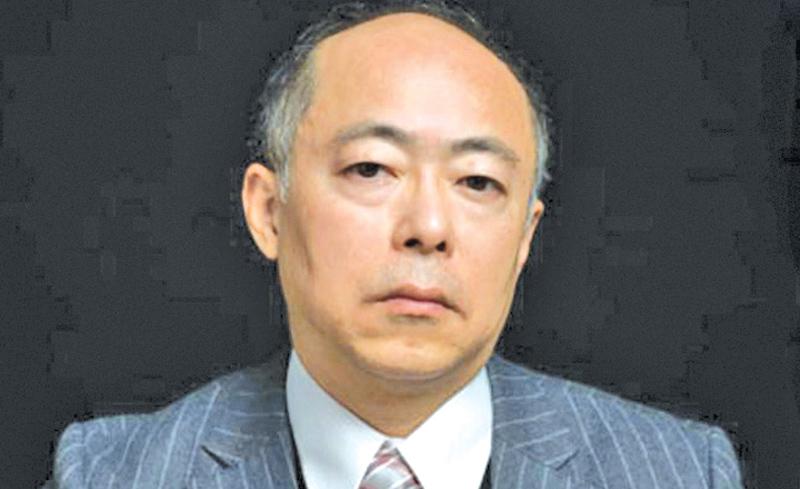
Former Supreme Court Judge of Japan, Motoo Noguchi who visited Sri Lanka. in an official capacity, to look into reconciliation, observed that it is important that Sri Lankans realise the process is not merely for one part of the people such as for the Tamils, but for all citizens of the country.
“The on-going reconciliation efforts are for the all the people of Sri Lanka and to benefit all in an equal manner. There may be some misunderstanding that the mechanisms will benefit only a part of the people of Sri Lanka, such as Tamil people, but this should not be the case,” Noguchi said in a statement.
Speaking on the alien nature of the process, especially in the Asian context, he explained that unfamiliar terms such as transitional justice and accountability may hinder the progress of reconciliation as it can be a cause for misunderstanding.
“The ability of a State to protect its people by adherence to the rule of law is one of an essential infrastructure of a Nation State,” the statement read. Same as other critical elements of social infrastructure such as water, sanitation, education, transportation, and financial systems, a principled and efficient judiciary is a key element for a democratic nation.
To achieve reconciliation, the mechanism must be built on four pillars: truth, justice, reparations, and non-recurrence, only through which the final outcome can be achieved.
Reconciliation requires that the fate and whereabouts of those who are still missing must be found and made known to their families without further delay, those who seriously suffered must be adequately redressed so that they can regain their dignity and hope, and start a new life. Those who were responsible for these serious sufferings must be punished according to law and subject to the availability of credible evidence, and finally all communities across the country must reunite to rebuild a peaceful and prosperous country and to prevent the recurrence of past tragedies.
He reiterated that a majority think that the judicial mechanism will only look at alleged war crimes committed by the military forces and not the ones committed by the LTTE. This approach results in the mindset that accountability mechanism as a structurally one-sided and inherently unfair forum aimed at punishing war heroes.
Negating this line of thought, Noguchi explained that what this mechanism hopes to do, is to prosecute those who were responsible for serious sufferings of people, irrespective of their ethnicity or religion, and thereby to provide justice to victims, their families, and their communities. The main criteria in case selection, should be the gravity of the crime and not who committed the crime.
“In other words, the judicial mechanism should be designed, structured and operated in a way that it will benefit all the communities in a fair and equal manner,” he said.
He stressed that although the judicial mechanism is of utmost importance that it is also equally important to know that the judicial mechanism is not a forum to pursue collective responsibility of some entities including the military forces.
It is a procedure to identify individual criminal responsibility, thereby contributing to convictions against some individuals while releasing others from unfounded allegations against them. And those who are prosecuted of course will have a right to rebut to charges against them under due process of law and shall be acquitted in case of a successful defense or the absence of evidence to prove guilt beyond reasonable doubt.
Speaking on the question of international judges in the discussion surrounding the accountability mechanism, he stated that what is most important is not the nationality of judges, but whether an individual serving as judge can be supported by all the communities equally and whether the people are willing to leave the fate of cases to his/her wisdom and professionalism.
“What is more important is to secure the fair, skilful and efficient investigations which are a prerequisite to make any subsequent trials meaningful. Without high-quality investigations there is not much that even the most able judges can do,” he said. Forgetting about past events and just looking to the future, without undergoing painful and complicated procedures of criminal prosecution and trials will effectively endorse the culture of impunity, will fail to provide justice to victims and will increase the risk of recurrence of similar crimes and tragedies.
As an established democratic country, Sri Lanka must stick to the rule of law, not only on legal texts but also through concrete action of the judiciary. Reassuring Japan’s backing towards Sri Lanka’s rebuilding efforts, he stated that Japan is most honoured to help Sri Lanka in its unprecedented endeavours.
“Japan is a long friend of Sri Lanka. Nearly seventy years ago, when Japan was struggling to rebuild the country from the scourge of war, Sri Lanka was one of the first countries which strongly supported Japan in its endeavours to return to the international community,” he said.
(Noguchi is a Prosecutor at the Supreme Prosecutors Office of Japan; Chair of the Board of Directors, the Trust Fund for Victims, International Criminal Court; Former United Nations International Judge at the Cambodia Khmer Rouge Trials, the Supreme Court Chamber; Former Professor of UNAFEI (United Nations Asia and Far East Institute for the Prevention of Crime and Treatment of Offenders), Former Visiting Professor of the University of Tokyo; Former Counsel, Office of the General Counsel, Asian Development Bank.)
